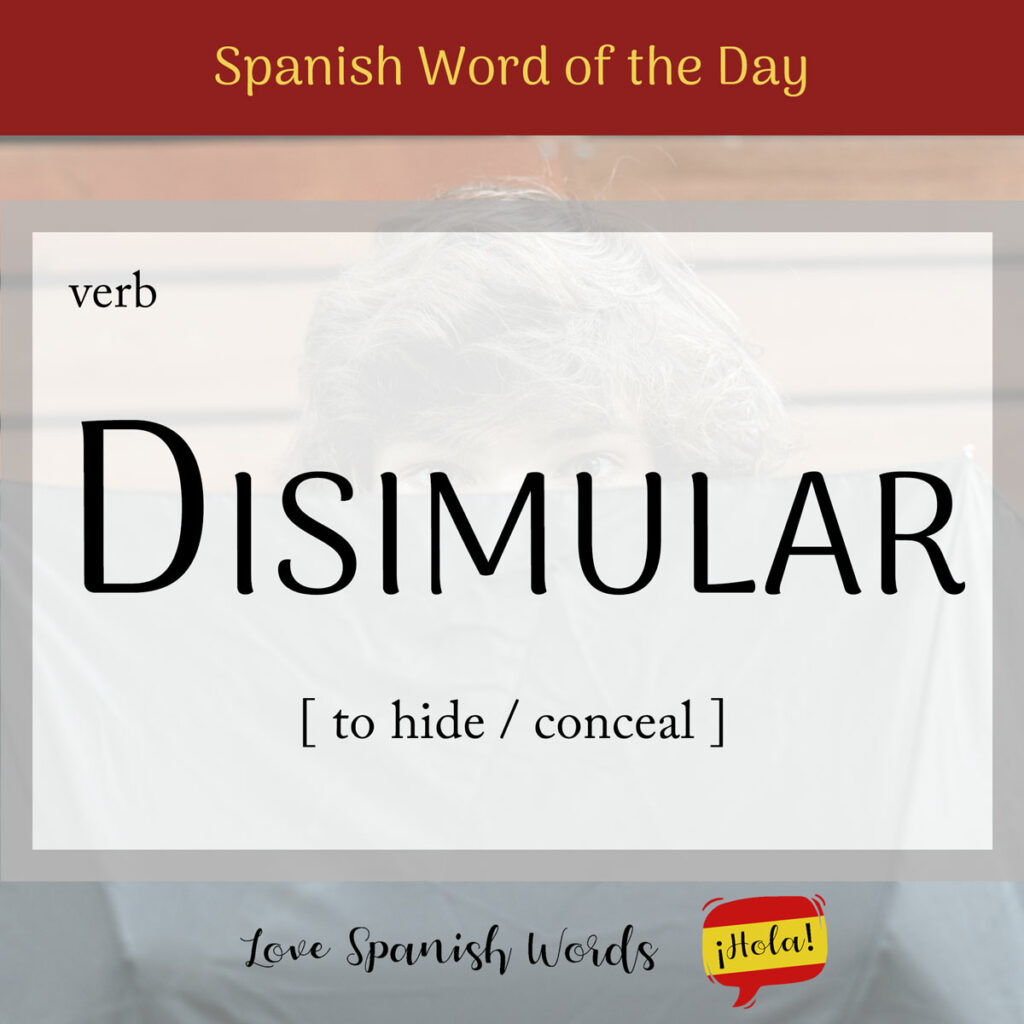The word disimular traces its origins back to the Latin word dissimulo or dissimulare, which is composed of two parts: dis- (a prefix meaning “apart” or “away”) and simulare (to pretend or feign). Simulare is derived from similis (similar, alike), suggesting the idea of making something appear as if it were something else, or hiding something by making it seem different. In essence, disimular in its earliest form meant to pretend something isn’t happening or to hide the truth under a facade.
Latin American Pronunciation
European Pronunciation

In modern Spanish, disimular means to conceal, hide, or cover up something—often emotions, intentions, or feelings. It can be thought of as an act of downplaying or pretending, much like the English verbs to feign or to mask.
Él intenta disimular su sonrisa.
He tries to hide his smile.
In day-to-day conversation, disimular is frequently used in social interactions, often to describe a scenario in which someone is hiding their true thoughts or feelings to maintain appearances or to avoid confrontation.
Mi abuela disimuló su nerviosismo antes de la cirugía.
My grandmother hid her nervousness before the surgery.
In many Hispanic cultures, especially in more formal settings or within family structures, there’s often a cultural expectation to disimular feelings like rabia (anger), incomodidad (discomfort), or frustación (frustration) in order to maintain harmony and avoid conflict. This can sometimes contrast with cultures where direct expression of emotions is encouraged.

False friends:
The word dissimulate also exists in English, meaning to disguise or hide true feelings, but it’s much less common in everyday conversation. English speakers learning Spanish might find disimular more frequent and may confuse it with words like simulate or assimilate, which have different meanings.

Spanish idioms featuring ‘disimular’
Disimular como el que no ve
Literal translation: to dissimulate like someone who doesn’t see
English meaning: to turn a blind eye
Disimular lo que no es
Literal translation: to dissimulate what is not
English meaning: to put up a front / to pretend to be something you’re not
Hacerse el disimulado
Literal translation: to act dissimulated
English meaning: to play dumb / to act as if you don’t know

